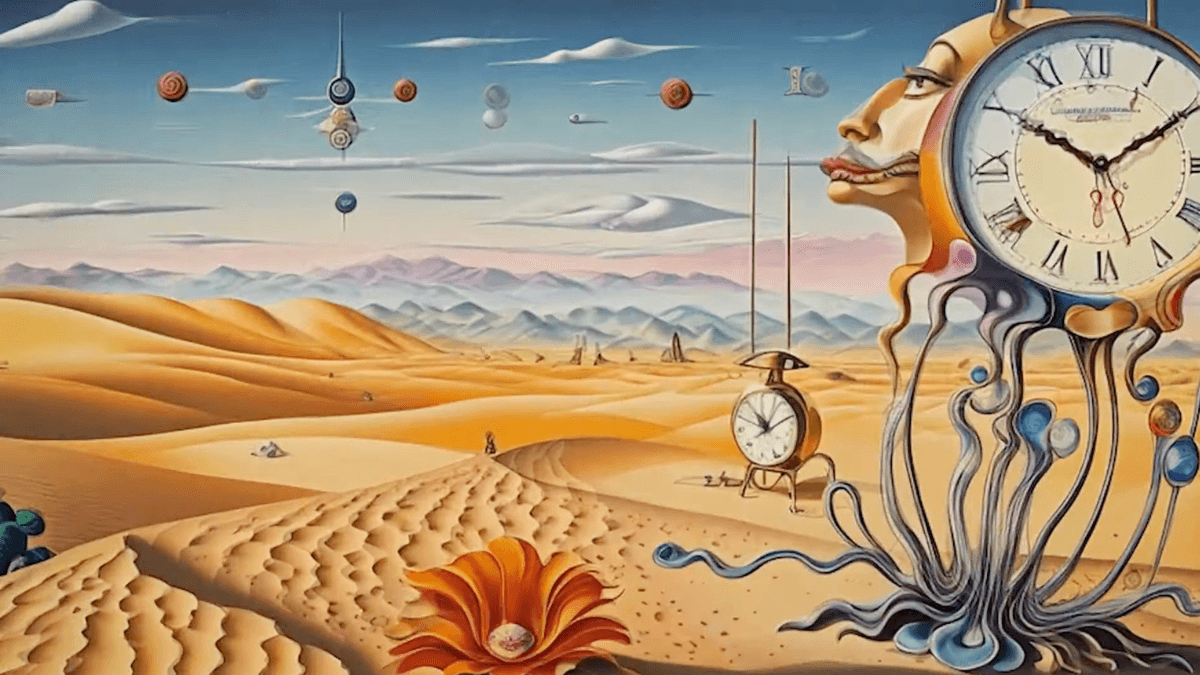The nature of the spot is that it is uncompromising, as is the experience of activation. It is binary. There are no gradients. There are no awards for “almost” or “close.” We will not find relief until we find the spot. Period.
The spot then goes from closed to open. It is as literal as the experience of the lights going on in a pitch-black room. The body “activates” or turns on, the mind has a flash of insight, and the exact craving is met with the precise flavor. It is absolute. There is no wiggle room. There is no way to design any facsimile of experience that could convince us otherwise.
The spot, when opened, is incontrovertible.
We have a gnawing sense that something is not quite right. If the mind is not in absolute, complete, taut, dynamic attention, we are not on the spot.

It will train us, without straining or striving, to search for it. It will convince us to give up our habits of mind for it and settle for absolutely nothing less. Because anything less is in fact nothing we actually want. Anything less is compensation for not being on the spot.
For the most part, we do not like absolutes. But to argue with the spot is akin to arguing with gravity. Arguing does not make gravity or the spot less real. The spot challenges all of the obscurations of mind:sloth, impatience, rationalization, delusion, self-pity, self-berating, self-doubt, contorting, attempts to coerce things into being other than they are, and nihilism. And still one thing will remain constant; the spot remains unchanged. There is absolutely nothing we can do to change or affect the spot other than abandon ourselves over to it.
Where before we did not know for sure what was real, now we suddenly see in stark relief what we could not quite make out before.
We can see the truth, not just of this particular circumstance, but of the entire landscape. We see what in the environment is real and true and what is mirage. We all deeply know, even if we are not consciously aware, when someone is living on the spot and when they have deviated. We have all tried to pretend the same way, so we can really see when a person is trying to pretend.

At the same time, no matter how much we dislike their realization and particular brand of expression when they are on, it cannot be denied in the gut. And no matter how beautiful or how much sense they make, if it is not on the spot, we feel that, too. It takes more effort to avoid confronting reality than it does to confront it, so the person off the spot will be in a state of internal conflict and we will not be able to help but feel it in their presence as tightness.
We see it in art, taste it in food, know it in communications, feel it in touch.
Our whole worldview shifts; we do not need to protect ourselves, to research, or to rely on an endless stream of conflicting information. We know.
And the energy that went to researching and pondering can now go to developing the qualities of mind that fortify our capacity to know at deeper and more refined levels. Not only do we know, we know with a conviction that cannot be moved. That part of the tumescent mind that so wants to be right, that will angle and deny and convince at any cost—now it actually is right.
It now knows with a certainty that cannot be altered in any way—cannot be convinced or coaxed into doubt. Instead, it becomes the bedrock of consciousness, and the anxious feeling of seeking stability and certainty in a volatile world is finally quelled. At the same time, because it is so hard-earned and therefore precious, the need to assert our will is calmed as well.
This may occur as humility, and in a sense it is, but it is in reality a conservation of attention focusing on staying with the knowing. We will live in a reality where we neither need to fight nor bow to anyone or anything other than this spot. It will make us courageous, it will give us perseverance, it will let us exit an argument when others do not see it.

At the same time, we will notice an extraordinary connection with those who live on the spot; it is as if everyone is making out the same truth in what otherwise appears as an optical illusion.
Each will return with certainty and others will recognize the certainty and the awareness that comes from that experience. Individuals will uniquely experience a spot incontrovertibly and be drawn to others who know this spot. The truth of what was seen will unify by affirming, “Yes, I have seen and know what you have seen and know.”
We will come to know which people are “spots” and which are not, because while descriptions of the experience may differ, the experience they are all pointing to will not. We will find agreement not by any convincing; in fact, quite the opposite.
We will find agreement because the truth of what was seen and known cannot be denied. It will be what speaks through us. Our connections will self-organize in this way. Our reality and sense of how to live will become progressively more obvious as the contrast between being on the spot and not will be increasingly higher.
As the mind shakes loose its habits and preferences, there will, of course, be the tendency to tell ourselves this is the spot when it is not.
The instruction is quite simple: Don’t do that. And if we do, we always know we are doing it, so stop that. And if we don’t stop and we have gone too far, then stop now and turn around and get humble immediately. We have likely carved a path of artificial righteousness fortified by reason. We have likely tried to convince ourselves and others. When we just stop and say, “I was wrong, this isn’t it,” a miracle will happen. The spot we are on becomes the spot.

A most challenging part of this occurs in communication with others. Because we can neither settle for ourselves being off the spot nor make another turn on the spot and “see,” we have only two options. If we are engaged in communication, we must say the truth we see as a simple observation. If they do not turn on or receive us, the best suggestion is to simply remove attention. Trying to convince them or to stroke a closed spot creates that much more closure and distance.
It is a challenge, at times, to realize we cannot make something into a spot. So, we stop. That removal of attention can then free our attention to locate an actual spot.
And just as in Orgasmic Meditation (OM), when stroking a spot on the clitoris near a closed spot, if the closed spot “catches fire” and opens, it may be that our removal of direct attention is what allowed it to open. However, forcing or not engaging will build resentment because in either case we are not at optimal extension, nor are we remaining dynamic.
And just as it can be that the tiny, nearly invisible spot on the clitoris grows and expands to become the whole of the clitoris, it can also be that the spot comes to be the whole of our life. Life will either organize in untold perfection if we are on the spot or unimaginable chaos if we are off it. When we are on the spot, we will not know how it came together so effortlessly. If we are off it we will not know how it all fell apart.